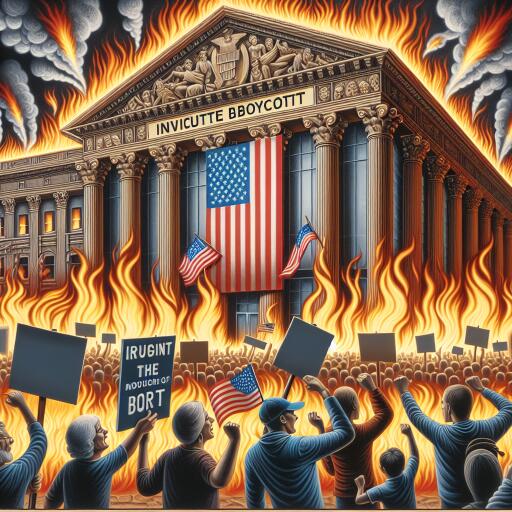American Banking Giant Faces Backlash, Sparks MAGA Boycott Calls
In a controversial move that has ignited fierce debate across political and financial spectrums, an American banking behemoth has recently come under severe criticism. Actions taken against John Eastman, a renowned Trump ally and conservative figure, have intensified the spotlight on this institution’s practices. John Eastman found himself unexpectedly cut off when Bank of America and USAA decided to terminate his accounts without warning, a decision confirmed by the Daily Caller in separate instances in September and November of 2023 respectively.
This incident is not an isolated one but fits into a broader narrative of financial institutions allegedly targeting individuals based on their political affiliations, a practice that significantly gained traction during the peak of the COVID-19 pandemic. The practice of de-banking, categorized by some as a form of financial persecution, has drawn sharp criticism and calls for a boycott, particularly from supporters of the MAGA movement.
In response to these actions, social media became a battleground with MAGA supporters vociferously condemning Bank of America’s decisions and urging for widespread boycotts. In an escalated effort to combat what they see as discriminatory practices by the banking giant, fifteen Republican attorneys general united in penning a letter to Brian T. Moynihan, CEO of Bank of America. They demanded transparency and assurances that the bank would cease its pattern of de-banking customers based on their political or religious expressions.
Amidst this turmoil, financial stability concerns have also been raised in relation to Bank of America. Larry McDonald, a seasoned market observer, made startling remarks suggesting that Bank of America could face insolvency if the Fed Funds Rate were to reach 6%. This alarming speculation was grounded in the broader context of financial institutions grappling with unrealized losses totaling $650 billion, as reported by Moody’s. This financial vulnerability underscores the precarious position some of the biggest names in banking find themselves in today.
Of particular note is the situation regarding the bond market, which experts believe could trigger another financial crisis akin to the collapse that ensnared Silicon Valley Bank. The rigorous evaluation by Moody’s, coupled with the banking sector’s fragility, casts a shadow over the solvency of institutions like Bank of America despite assurances from financial officers about the inherent safety of their government-backed securities.
The unfolding scenario poses critical questions about the future of banking, the intersection of finance and politics, and the sanctity of customer rights. As MAGA supporters and concerned citizens alike watch closely, the potential for a significant shift in banking practices and customer loyalty hangs in the balance. The call to action for those with significant funds in traditional banking institutions is clear, with alternative financial arrangements like cryptocurrencies and precious metals being touted as viable havens against a backdrop of uncertainty and unrest.
In an ever-evolving financial landscape, the coming months will be crucial in determining whether the actions of banking giants like Bank of America will spur significant regulatory or consumer-driven changes. As the dialogue continues and strategies are formulated, one thing is certain: the intersection of politics and banking will remain a hotbed of debate and action for the foreseeable future.
